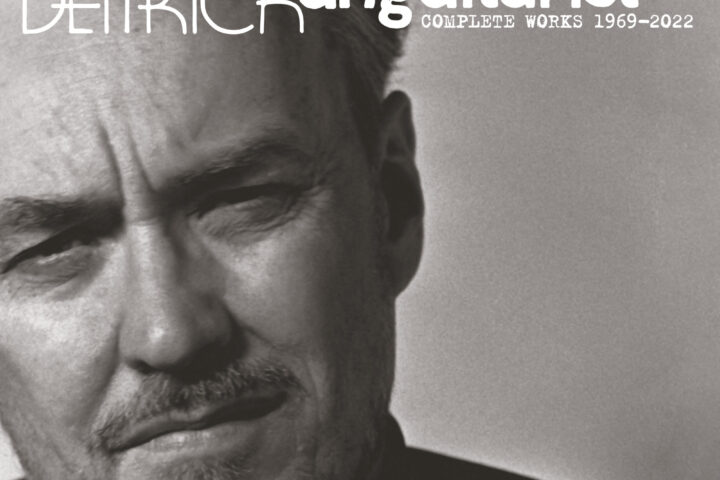We all know that the CD’s days are numbered but in the last couple of years it seems to be putting a hell of fight to keep from going extinct. Here is a roundup of my favorite reissues of the year, all of which come with the extensive liner notes and beautifully designed packages you just don’t get on Spotify or Pandora.
The Bristol Sessions: The Big Bang of Country Music 1927-1928 Various Artists (Bear Family)
There have been a few CD collections over the years devoted to the legendary 1927 and 1928 Bristol, Tennessee recording sessions that essentially ushered in country music as a commercial force, but this lavish five-CD set from Bear Family is the first that gathers all of the 124 tracks that were cut in those long ago summer months. These were, of course, the sessions that captured the first recordings of The Carter Family and Jimmie Rodgers, but the real story is how good everything else is. Artists like Red Snodgrass, The Bull Mountain Moonshiners and El Watson may be unknown these days but the music they made back then still has the power to thrill. But the real story is how important Ernest Stoneman was to the proceedings. At the time, he was already well known for his million-selling record “The Titanic,” and he was actually the man who rounded up most of the musicians for the recording sessions. He also appears on quite a few of the tracks here and it seems he could do everything from playing guitar and harmonica, singing gospel songs, playing in comedy skits and performing weepy ballads. Ernest Stoneman is hardly a forgotten or unknown figure, but the music presented here does suggest that he is badly underrated. This collection is essential for anyone who loves American roots music.
SMiLE Sessions The Beach Boys (Capitol)
SMiLE has been described as Brian Wilson’s lost masterpiece but that’s only half right: it was never really missing. It’s true that Wilson never quite completed the album in 1967 but he came awfully close and over the years just about everything The Beach Boys recorded for it has been released in one form or another. In 2004 Wilson released a rerecorded version of SMiLE that only increased the calls to release the original album, which finally happened this year. There are now three versions, a double LP (yes, vinyl), a 2-CD set and a 5-CD set that includes the LPs and 2 seven-inch singles. Over the years there have been a few different theories about why the original project was scuttled with Brian’s precarious mental health and resistance from the band to Van Dyke Parks’ oblique lyrics being the main contenders. But after listening to the sessions for “Heroes and Villains” included on the massive box set—Wilson assembled the song out of multiple short tracks– it looks like he may have given up on the project because the recording studios of the day just weren’t up for the task of realizing his vision. My buying advice? If you just want the music, go for either the 2-CD or 2-LP set, which will include the SMiLE album and a few extra recording sessions tracks. If you want to listen in on a genius while he does his genius thing, go for the 5-CD set.
Quadrophenia: The Director’s Cut (Super Deluxe Edition) The Who (Geffen)
Quadrophenia never got the love that Tommy or Who’s Next did, even though it is equal musically to both records. Perhaps that problem was that not only was it one of Pete Townsend’s most introspective compositions, you needed a fairly deep understanding of the Who’s mythology and a knowledge of 1960s Mod culture to figure out what was going on with it. If you bought the LP way back when, it came with a 48-page book that included a series of photos commissioned for the record that basically gave you the narrative. The 100-page hardcover book that comes with Quadrophenia: The Director’s Cut reproduces those photos as well as including a long essay from Townsend detailing the record’s genesis. As for the actual music, there are two CDs of the LP’s original music and two CDs of Townsend’s demos, which include a couple of songs that were wisely cut from the final project. Bafflingly, there is also a DVD that includes a 5.1 surround sound mix of only eight of the songs. Why go to that effort and not include the whole record? If you are a Who fanatic you probably need to get this box set. If not, the new 2-CD Deluxe Edition will most likely satisfy you.
This May Be My Last Time Singing: Raw African-American Gospel on 45RPM 1957-1982 Various Artists (Tompkins Square)
My favorite reissue this year is a 3-CD compilation of artists I’ve never heard of. This May Be My Last Time Singing: Raw African-American Gospel on 45RPM 1957-1982 was compiled by Mike McGonigal and is a follow-up to his similarly themed 2009 release Fire in My Bones: Raw, Rare & Otherworldly African-American Gospel, 1944-2007. All of the tracks here were collected from 45s recorded for tiny regional labels or, in many cases, records paid for by the musicians themselves. As you might expect, every track features powerful vocal performances but the real surprise is how prevalent guitarists are. The players seem to divide themselves into one of two camps: those who emulate the bluesy, singing tones of Sister Rosetta Tharpe and those who were inspired by the reverb-drenched, tremolo laden timbres of Pop Staples. I couldn’t pick out just one or two artists to praise because they were all so good. Highly recommended.
Your Past Comes Back to Haunt You John Fahey
Opika Pende: Africa at 78 RPM Various Artists
…i listen to the wind obliterate my traces Various Artists
(Dust to Digital)
Dust to Digital has been putting out beautifully produced box sets of archaic, antique and obscure music for a few years now. For FJ readers, the most important one to know about is Your Past Comes Back to Haunt You a five-CD collection of recordings John Fahey made for Joe Bussard’s Fonotone label. Bussard had an amazing collection of old blues and country 78s and in the 1950s and early 1960s musicians interested in those styles would make the pilgrimage to Joe’s place to listen, where he would then ask to record them for his tiny label. When Fahey first began making records for Bussard in 1958 he started by playing blues but over time he began to record his own enigmatic, angular compositions. It’s rare that you can listen in as a major musician creates his singular style, but Your Past Comes Back to Haunt You allows you to do just that. Opika Pende: Africa at 78 RPM is a 4-CD set compiled by Jonathan Ward that documents a small sample of the music that was recorded on the African Continent from the mid-1920s to the mid-1950s. Although, many of these records were recorded by European labels, they were intended for local sale so they reflect what an actual resident of Zanzibar or Ghana would want to hear, rather than what a record executive in Berlin or London thought African music should sound like. The set includes a meticulously documented 112-page book. Depending on your temperament, you will find …i listen to the wind obliterate my traces charming or exasperating. This 2-CD collection comes packaged in a 148-page book of vintage photographs of musicians. The part that annoys some people and delights others is that there are no track listings for the CDs or captions for the photos. The music is all drawn from 78s and features a rather chaotic mix of blues, country, pop, jazz, sound effects records and weird old home recordings. To me, listening to the CDs and paging through the book is a little like wandering in to the best thrift store ever and running across a lot of random treasures. A couple of my record collecting friends hated the lack of discographical information. Your mileage may, as they say, vary.


